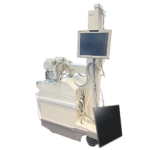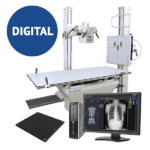February is American Heart Month, the perfect time to discuss our most vital organ
Valentine’s Day is a holiday that brings out romantic (and sometimes cheesy) declarations of love from all of us, whether it’s directed at your significant other, your best friend – or even your pet. Some may not even celebrate the holiday, whether it’s for religious reasons or simply because they believe the holiday is overrated because it was created by the card and candy companies. (I may have a cynical streak and believe the ladder, but that doesn’t stop me from enjoying some cheesy declarations and candy regardless.)
Either way, I think we can all agree on the classic symbol of Valentine’s Day: the heart. The familiar symbol was used as early as the 14th century, and by the 19th century, the heart was popping up in popular culture and frequented many a Valentine’s Day card. But through it all, the literal heart has been the meaning behind the symbol. February is American Heart Month, the perfect time to discuss our most vital organ. That is why today we’ll focus on a pair of recent radiology stories revolving around the heart; as a reminder to our loved ones that taking care of it really is the best Valentine’s Day gift of all.
Cardiac MRI Reveals How Short-term Sleep Deprivation Affects Heart Function
Everyone knows that sleep is good for your mental and physical health, helping you curb hunger pangs and stay focused at work. But according to a study presented at RSNA 2016, not getting enough sleep could greatly affect your heart. This is actually the very first study to dive into the effect sleep has on the heart, but it is incredibly vital to those who work in fields where exhaustion and lack of sleep may be commonplace, such as those who work in emergency services and other high stress jobs.
For the study, 20 radiologists were used to examine the effects of sleep deprivation. After short term sleep loss, participants showed increases in blood pressure, heart rate, and levels of thyroid stimulating hormone. However, it was noted that “further study in a larger cohort is needed to determine possible long-term effects of sleep loss.”
To read more about the study, click here.
Get Started
Request Pricing Today!
We’re here to help! Simply fill out the form to tell us a bit about your project. We’ll contact you to set up a conversation so we can discuss how we can best meet your needs. Thank you for considering us!
Great support & services
Save time and energy
Peace of mind
Risk reduction
Artificial Intelligence Predicts when Heart will Fail
According to a team from UK’s Medical Research Council, a new software has learned to analyze blood tests and scans of beating hearts, in order to discover signs that the organ was about to fail. The researchers were studying patients with pulmonary hypertension for the results, which were published in the journal Radiology.
The software was given MRI scans of 256 patients’ hearts, as well as blood test results and 8 years of patient health records, and measured the movement of 30,000 different points in the organ’s structure during each heartbeat. 80% of the time, the data was able to accurately predict those who would still be alive after one year. Doctors have a 60% accuracy rate.
If made widely available to doctors after being tested in other patients in different hospitals, the research team says the software could look about five years into the future.
Read more about the study here.
From all of us at Amber Diagnostics, we hope you’ve enjoyed our heartwarming and informative radiology news stories for Valentine’s Day. Now feel free to eat a heart shaped pizza or simply enjoy this neat Valentine’s message from a very famous scientist.



